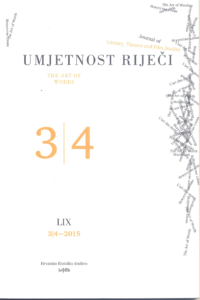The Habsburg Legacy from a Postcolonial and Postimperial Perspective
The Habsburg Legacy from a Postcolonial and Postimperial Perspective
Author(s): Marijan BobinacSubject(s): Cultural Anthropology / Ethnology, Culture and social structure , Sociology of Culture, Theory of Literature, Sociology of Art
Published by: Hrvatsko filološko društvo
Keywords: Habsburg Postcolonial; Central European Studies; Empire Studies; Ban Bánk (József Katona; Franz Grillparzer; Franjo Marković);
Summary/Abstract: In the discourse on the Habsburg Monarchy, two opposing attitudes prevail. Depending on one’s perspective, which can be nationally exclusive or nostalgic, the Monarchy is perceived either as a “peoples’ dungeon” (Völkerkerker) or “unity in multiplicity” (Einheit in der Vielheit). A group of researchers has recently invested much effort to overcome this discursive gap, by applying a theoretical paradigm called the Habsburg Postcolonial. This theoretical approach relies on Anglo-Saxon postcolonial studies and recent research into Central European cultural phenomena, and analyzes opposing cultural forces in the Danube Monarchy (a multinational state formation of questionable colonial importance), by focusing on: the intertwining of language, culture and politics; images of the self and others; dynamics between the center and periphery; and particularism and universalism. Unlike overseas colonialism, dichotomies such as that of center and periphery do not appear in pure forms in complex empires such as the Habsburg Monarchy, so there is a strong tendency among scholars to use postimperial theories when researching this area. This article is concluded with a short case study that shows how the same historic material—a story about medieval Hungarian nobleman Bánk—was transposed in a variety of (supra)national contexts in the turbulent nineteenth century.
Journal: Umjetnost riječi
- Issue Year: 2015
- Issue No: 3-4
- Page Range: 239-260
- Page Count: 22
- Language: English

